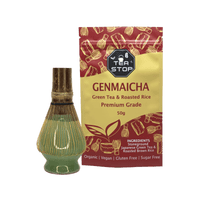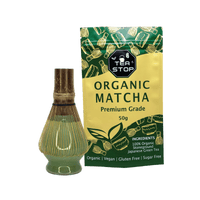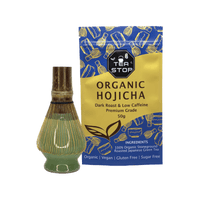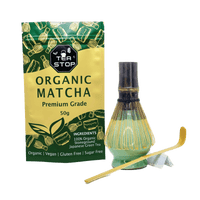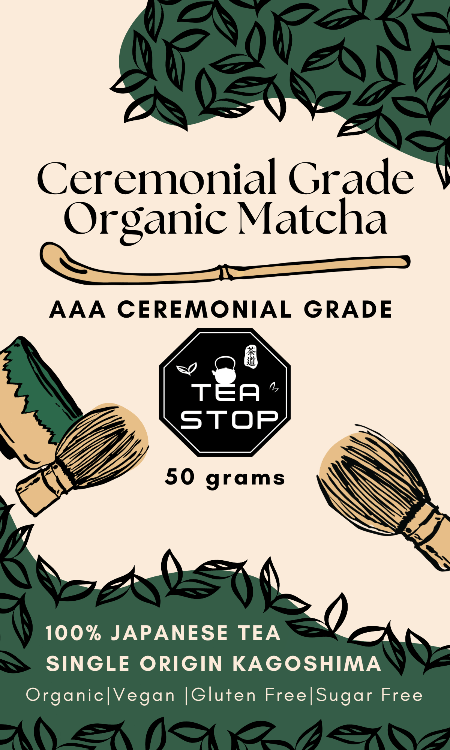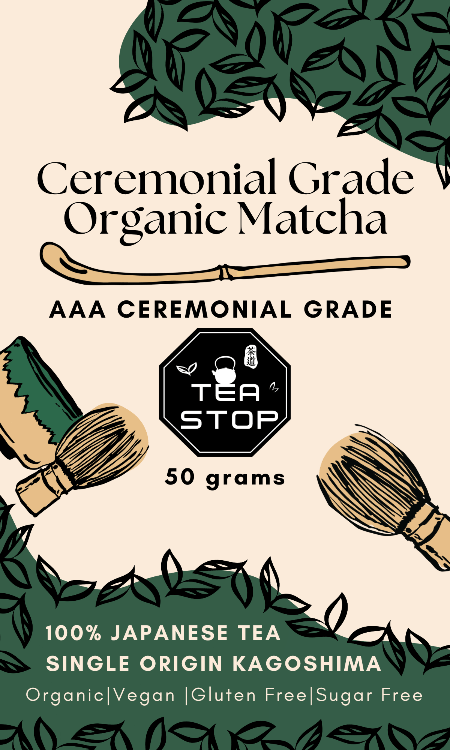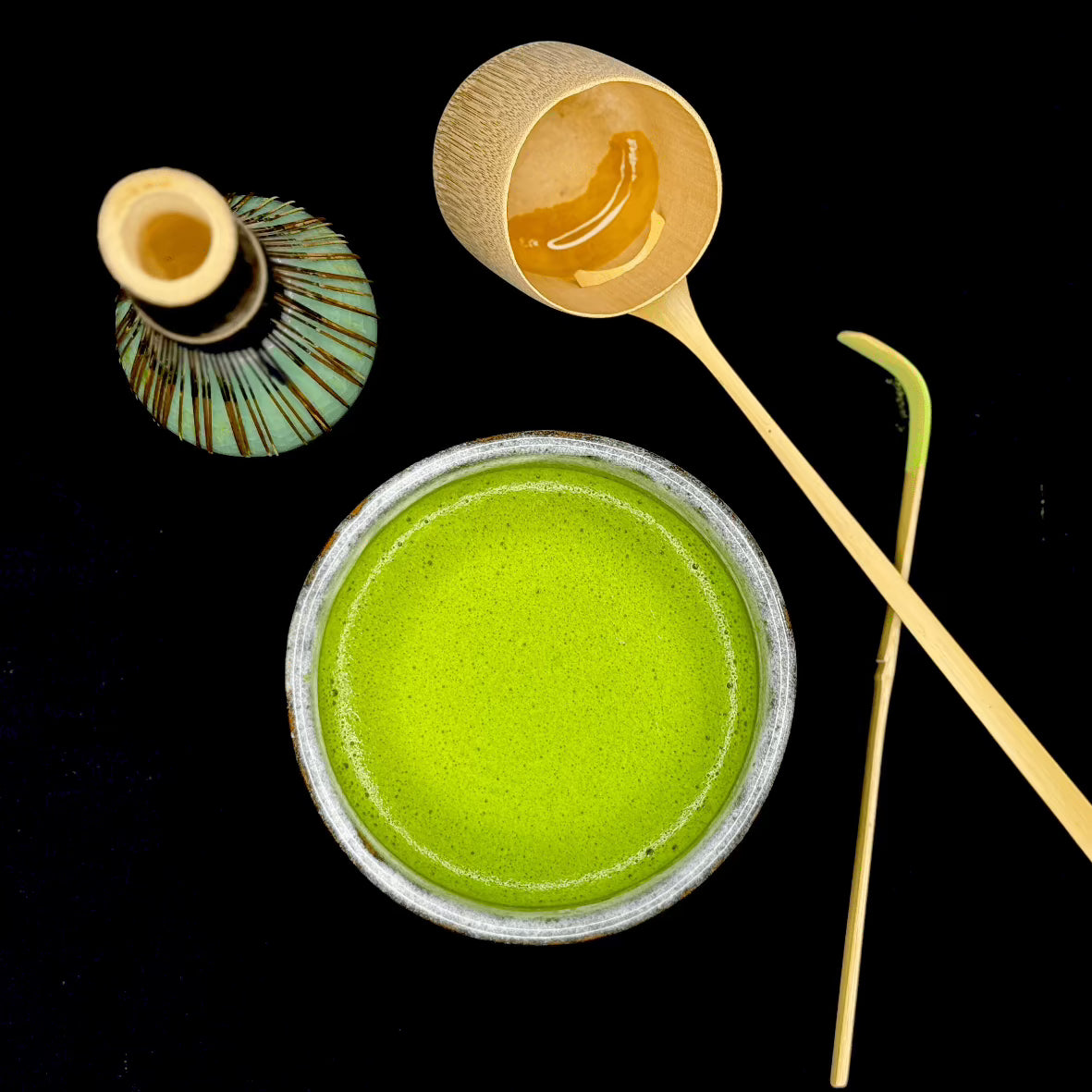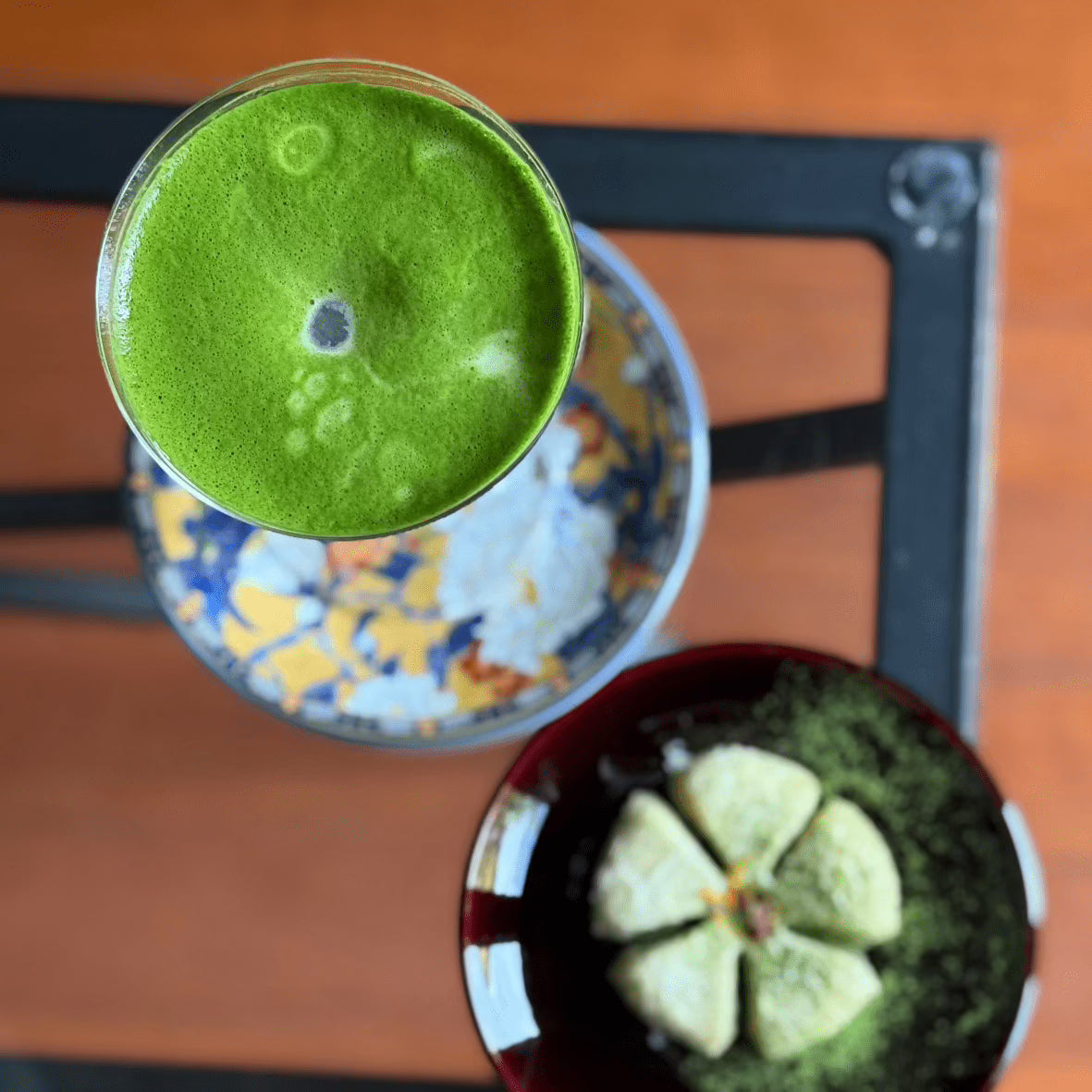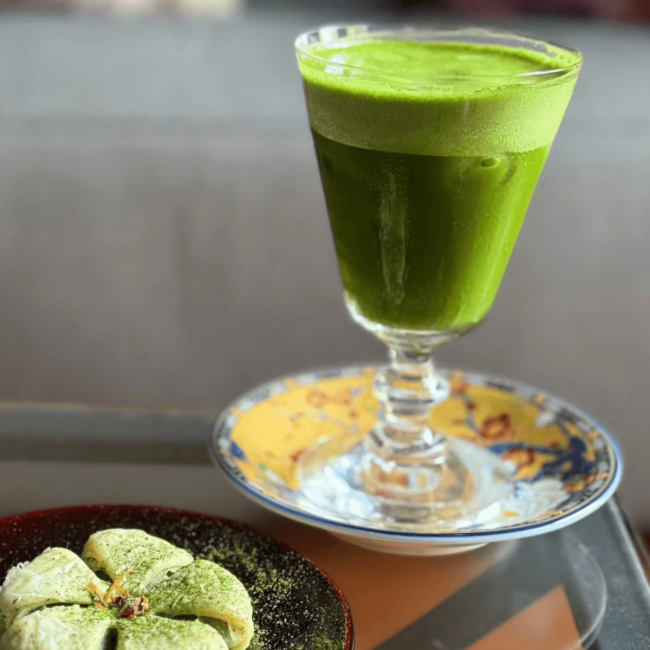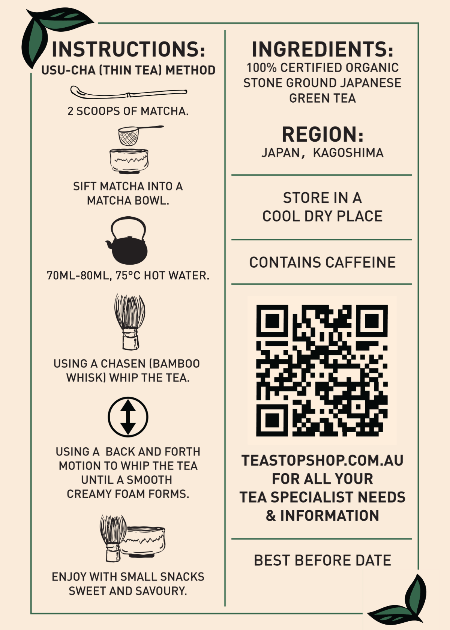
Did You Know Rooibos Tea Has These Amazing Health Properties?
Share
Have you ever wondered what makes rooibos tea so special among herbal beverages? This naturally caffeine-free red infusion, derived from South Africa's Aspalathus linearis shrub, stands out for its earthy, full-bodied flavour and impressive health benefits. Unlike most herbal teas, rooibos brings both taste and function to your cup—making it a rising favourite in Australia’s wellness scene.
What Sets Rooibos Apart?
Unlike traditional teas made from the Camellia sinensis plant (such as black, green, or white teas), rooibos comes from a completely different botanical source. This distinction imparts several unique characteristics:
- Caffeine-Free: Perfect for those avoiding stimulants or looking for a calming evening drink.
- Low Tannins: Rooibos contains very low levels of tannins, which means it doesn’t have the bitter or astringent aftertaste common in many teas.
- Naturally Sweet and Nutty: Its smooth flavour profile is naturally sweet with subtle nutty tones, making it enjoyable without added sweeteners.
Fun fact: The name rooibos translates to “red bush” in Afrikaans, a tribute to the striking reddish color the leaves take on once processed and brewed.
A Closer Look at Rooibos’s Health-Promoting Qualities
Rooibos tea isn’t just flavorful—it’s rich in bioactive compounds that contribute to various health benefits:
- Powerful Antioxidants: It contains unique antioxidants like aspalathin and nothofagin which help combat oxidative stress and reduce inflammation.
- Heart Health Support: Some studies suggest rooibos may improve cholesterol levels by reducing LDL (the "bad" cholesterol) and increasing HDL (the "good" cholesterol).
- Blood Sugar Regulation: Aspalathin has been linked to improved insulin sensitivity and blood sugar control, beneficial for managing diabetes risk.
- Digestive Aid: Traditionally consumed to soothe stomach cramps and digestive discomforts.
This article delves into the scientifically supported health benefits of rooibos tea—from antioxidant protection to cardiovascular and metabolic wellness—highlighting why this South African treasure deserves a place in your daily wellness regimen.
Why Australians Love Rooibos: Popularity and Trends
Australians are increasingly seeking natural wellness drinks that offer functional benefits without caffeine or additives. Rooibos fits perfectly into that lifestyle shift, becoming a staple for those prioritising health and sustainability.

Key Reasons Rooibos Resonates with Australian Consumers
- Caffeine-free appeal: Rooibos is naturally caffeine-free, making it an excellent choice for evening routines or anyone sensitive to caffeine's stimulating effects. This quality allows you to enjoy a soothing cup anytime without disrupting sleep patterns or causing jitters.
- Sustainability: Many Australian brands now source organic rooibos, aligning with consumer demand for ethically produced products. These suppliers often adhere to fair-trade practices, ensuring farmers receive fair compensation while promoting environmentally friendly farming methods. Choosing organic rooibos supports biodiversity, reduces chemical use, and helps maintain soil health.
- Versatility: Rooibos tea’s subtle, sweet flavour profile makes it incredibly versatile. It can be enjoyed:
- Hot: As a comforting warm beverage during cooler months or relaxing evenings.
- Iced: Refreshing and naturally caffeine-free for hot Australian days.
- Blended: Combined with native Australian ingredients like lemon myrtle or wattle seed to create unique flavour experiences, highlighting local botanicals and enhancing health benefits.
Innovation in the Local Market
Local tea companies and cafes are embracing rooibos’ potential by developing innovative products such as:
- Rooibos chai blends: A caffeine-free twist on traditional chai spices, catering to those who want robust flavours without the buzz of black tea.
- Rooibos-infused lattes: Combining creamy milk alternatives with rooibos creates a smooth, antioxidant-rich drink appealing to wellness-focused consumers.
This surge in rooibos popularity reflects a broader movement within Australia's wellness market toward herbal and functional teas. Consumers are gravitating away from sugary soft drinks and high-caffeine beverages toward natural options that support hydration, relaxation, and overall health — all while fitting seamlessly into modern lifestyles focused on balance and sustainability.
Major Health Benefits of Rooibos Tea
1. A Rich Source of Antioxidants
Your body is constantly under attack from unstable molecules known as free radicals. These troublemakers harm your cells and contribute to aging and various diseases. Antioxidants are like your body's defence system, neutralising these harmful compounds before they can cause damage to your health.
Rooibos tea stands out among herbal beverages when it comes to antioxidants. This South African wonder contains impressive levels of polyphenols—plant compounds that provide powerful protection. Two key players you should know about are aspalathin and quercetin. Both contribute to the Rooibos Tea Antioxidants that help reduce oxidative stress and promote overall well-being.
The Unique Benefits of Aspalathin
Aspalathin is particularly special because it is found exclusively in rooibos tea. This means you won't find it anywhere else in nature. Research published in Phytomedicine has shown that aspalathin has strong antioxidant properties, actively scavenging free radicals in laboratory studies.
The Advantages of Quercetin
Quercetin, the second major polyphenol in rooibos, brings its own set of benefits. This flavonoid is present in various plants, but rooibos offers it in significant amounts without the caffeine or tannins typically found in traditional teas.
2. Supporting Heart Health with Rooibos Tea
Your heart deserves the best care possible, and rooibos tea and heart health share a promising connection that's worth your attention. The polyphenols found in organic teas like Rooibos work actively to support your cardiovascular system in ways that might surprise you.
Balancing Your Cholesterol Profile
Rooibos tea plants contain compounds that help regulate your cholesterol levels. When you drink this red herbal infusion regularly, you're potentially helping your body maintain a healthier balance between LDL cholesterol (the type that can clog your arteries) and HDL cholesterol (the beneficial kind that helps remove harmful cholesterol from your bloodstream). A study published in the European Journal of Nutrition found that participants who consumed six cups of rooibos tea daily for six weeks experienced significant improvements in their cholesterol ratios.
Research-Backed Cardiovascular Benefits
Recent scientific research has begun to uncover the potential heart-protective effects of rooibos tea (Aspalathus linearis). A 2024 systematic review published in Beverages analysed human studies on rooibos consumption and its impact on health. The findings suggest that rooibos may support cardiometabolic health, showing improvements in several biological markers related to blood function and heart health.
While early results are promising—indicating possible benefits for heart metrics, blood composition, and inflammation control—researchers note that more studies are needed to confirm these effects. One unique advantage remains clear: rooibos is naturally caffeine-free, allowing you to enjoy its soothing taste and potential health benefits without the stimulating side effects of caffeine.
3. Aids Digestion and Gut Health
Rooibos tea supports digestive well-being through multiple gentle and natural pathways:
- Soothing the Digestive Tract: The anti-inflammatory properties of rooibos help calm irritation in the stomach and intestines, promoting comfort during digestion.
- Balancing Gut Flora: Some studies suggest rooibos may encourage a healthy balance of gut microbiota, which plays a crucial role in nutrient absorption and immune function.
- Reducing Bloating and Discomfort: Regular consumption can alleviate common digestive symptoms such as gas and bloating by easing muscle cramps in the gastrointestinal tract.
- Supporting Enzymatic Activity: Rooibos contains antioxidants that may support the enzymes responsible for breaking down food, aiding smoother digestion.
By nurturing the digestive system gently, rooibos tea for gut health becomes more than just a soothing drink—it’s a mindful companion in your daily ritual of wellness.
4. Rooibos Tea: Improved sleep and reduced insomnia
Quality sleep is crucial for overall well-being, and rooibos tea may offer some benefits in this area. Here's why:
Caffeine-free: Rooibos is naturally caffeine-free, making it a suitable choice for those who are sensitive to stimulants or trying to limit their intake. Avoiding caffeine in the evening can promote better sleep quality and reduce the risk of insomnia.
Stress reduction: This herbal tea contains antioxidants like aspalathin that may help lower stress hormone levels, helping your body relax after a long day. It’s no surprise that searches for rooibos tea for sleep are becoming more common, as more Australians look for natural ways to reduce stress and improve rest.
Magnesium content: Rooibos is a good source of magnesium, a mineral known for its role in promoting deep sleep and relaxation. Adequate magnesium levels have been linked to improved sleep quality and reduced insomnia.
While more research is needed to fully understand the effects of rooibos on sleep, these factors make it an attractive option for those seeking a natural way to support healthy sleep patterns.
5. Effects on skin health (eczema, wrinkles, topical applications)
Rooibos tea offers more than a restful night's sleep; it also supports skin health in thoughtful ways.
Eczema relief: Rich in antioxidants like quercetin and aspalathin, rooibos may help calm inflammation linked to eczema flare-ups. Gently applying cooled rooibos tea or using skincare products with rooibos extract can provide soothing comfort to irritated skin.
Supporting youthful skin: The antioxidants in rooibos work to neutralise free radicals, which can contribute to premature aging and wrinkles. Incorporating rooibos tea for skin benefits into your daily routine—or choosing rooibos-infused skincare—may help maintain your skin’s natural vitality.
Topical care: Beyond eczema relief, rooibos’s antiseptic qualities make it a gentle option for minor cuts, burns, and rashes. Its natural alpha-hydroxy acids encourage mild exfoliation, promoting a refreshed and glowing complexion.
While these qualities reflect rooibos’s nurturing potential, ongoing research continues to deepen our understanding of its role in skin wellness. Embracing rooibos with mindfulness allows us to honour both tradition and nature’s gifts.
6. Aiding Weight Management Efforts
Rooibos tea and weight management connect through several biological pathways that researchers have begun to understand. The unique compound aspalathin in rooibos appears to influence how your body processes and stores fat. Studies suggest this polyphenol may help reduce fat cell formation and increase the metabolism of existing fat stores.
You might find rooibos tea particularly helpful if you're working on controlling your appetite. Research indicates that rooibos can affect leptin levels—the hormone responsible for signalling fullness to your brain. When leptin functions properly, you're less likely to experience excessive hunger or cravings between meals.
The tea's natural sweetness provides another advantage: you can enjoy a satisfying beverage without adding sugar or artificial sweeteners. This makes rooibos an excellent replacement for high-calorie drinks that often sabotage weight management efforts. The absence of caffeine means you can drink it throughout the day, including evening hours, without disrupting your sleep—a critical factor in maintaining a healthy weight.
7. How Rooibos Tea Supports Bone Health with Essential Minerals
Rooibos tea contains several essential minerals, including calcium, manganese, and fluoride, which are vital for maintaining healthy bones. Calcium is well-known for its role in bone formation and strength, while manganese contributes to the development of connective tissue and collagen, which provide structural support to bones. Fluoride helps prevent tooth decay and strengthens dental enamel, an integral part of overall bone health.
Regular consumption of rooibos tea can provide a natural and delicious way to supplement your mineral intake and support strong bones. This is especially beneficial for individuals at risk of osteoporosis or those looking to maintain their bone health as they age.
8. Boost Your Immunity Naturally with Rooibos Tea
Rooibos tea is more than just a comforting and flavorful beverage—it’s a natural ally in supporting your immune system. Here’s why incorporating rooibos into your daily routine can be a gentle yet effective way to nurture your body’s defences:
- Rich in Unique Antioxidants- Rooibos contains powerful antioxidants like aspalathin and nothofagin, which work to neutralise harmful free radicals. These free radicals can otherwise cause cellular damage and weaken immune function.
- Supports Inflammatory Balance- Chronic inflammation can compromise immunity. Rooibos has anti-inflammatory properties that help maintain a balanced and healthy inflammatory response, key to robust immune health.
- Vitamin C and Essential Nutrients- This tea provides small but meaningful amounts of vitamin C—a vitamin renowned for its role in enhancing white blood cell activity, the frontline warriors against infections.
- Caffeine-Free for Sustained Wellness- Without caffeine, rooibos supports your immunity without overstimulation or stress on your adrenal glands, allowing for restful sleep which is vital to recovery and immune resilience.
“Sipping rooibos is a mindful ritual that not only soothes the senses but also quietly strengthens your body's natural defenses.”
By embracing rooibos tea as part of a holistic lifestyle—coupled with good nutrition, hydration, and restful sleep—you invite a gentle boost to your immunity that honors both tradition and nature’s wisdom.
Rooibos Tea Safety in Australia: Rooibos Tea Side Effects and Considerations
Liver Toxicity (Rare)
While rooibos tea is generally considered safe, there have been rare cases where excessive consumption may contribute to liver stress. This is often linked to very high intake levels or individual sensitivities. Typically, moderate daily consumption poses no risk, but those with pre-existing liver conditions should consult a healthcare professional before making rooibos a regular part of their routine.
Hormonal/Estrogenic Effects
Rooibos contains compounds such as phytoestrogens that can mildly mimic estrogen in the body. For most people, this effect is gentle and potentially beneficial, especially for balancing hormones during menopause. However, individuals with hormone-sensitive conditions or those taking hormone-related medications should approach rooibos thoughtfully and seek personalised advice.
Kidney and Fertility Concerns (Rare, High Intake)
High doses of rooibos might influence kidney function or fertility due to its bioactive compounds. These concerns are largely theoretical and based on limited studies involving unusually large quantities far beyond typical consumption. Nonetheless, pregnant or breastfeeding women and those with kidney issues are encouraged to moderate intake and discuss it with their healthcare provider.
Allergies and Interactions with Medications
Though uncommon, some individuals may experience allergic reactions to rooibos, ranging from mild skin irritation to digestive discomfort. Additionally, rooibos can interact with certain medications:
- ACE inhibitors: Rooibos may enhance the effects of blood pressure-lowering drugs, potentially leading to hypotension.
- Statins: Antioxidants in rooibos might influence how these cholesterol-lowering medications are metabolised.
If you take any prescription drugs, particularly those listed above, it’s wise to consult your doctor before incorporating rooibos into your diet regularly.
Rooibos vs Other Teas for Australians
|
Feature |
Rooibos Tea |
Green Tea |
Black Tea |
|
Caffeine |
None |
Moderate |
High |
|
Antioxidants |
Aspalathin, Quercetin |
Catechins |
Theaflavins |
|
Tannins |
Very Low |
Moderate |
High |
|
Best For |
Relaxation, sleep, heart health |
Energy, metabolism |
Focus, energy |
|
Taste |
Earthy, nutty, slightly sweet |
Grassy, astringent |
Bold, malty |
Australians seeking caffeine-free health drinks often choose rooibos over traditional teas for its gentle effect on digestion and its versatility - hot or iced, plain or blended.
Rooibos Tea Preparation Tips for Maximum Benefit

To fully appreciate rooibos tea's unique flavors and health benefits, mindful preparation is key. Here are some thoughtful tips to enhance your rooibos ritual and truly master How to Brew Rooibos Tea:
- Water Temperature- Use water just off the boil—around 95°C (203°F)—to gently coax out rooibos’s earthy sweetness without bitterness.
- Steeping Time- Allow your rooibos to steep for 5 to 7 minutes. Unlike traditional teas, rooibos doesn’t become bitter with longer steeping; in fact, extended infusion can deepen its rich flavour and antioxidant release.
- Loose Leaf vs. Tea Bags- Whenever possible, opt for loose leaf rooibos. It offers fuller flavour and retains more antioxidants than most pre-packaged tea bags.
- Enhance Naturally- Complement rooibos’s natural nuttiness with a slice of lemon or a dash of cinnamon. These additions can brighten the cup and bring extra layers of wellness.
- Mindful Brewing Ritual- Embrace the brewing process as a moment to pause and reconnect. Pour slowly, breathe deeply, and savour the warmth—honouring the tea’s origins and your own mindfulness journey.
By attending to these details, your rooibos experience becomes not only a delicious daily habit but also a gentle practice of care for body and spirit.
Australian Context: Where to Buy and How It’s Viewed Locally
Where to Buy Rooibos in Australia
You can buy rooibos tea in Australia from major supermarkets like Coles and Woolworths, health food stores, or online retailers such as Tea Life, T2, and Amazon Australia. For a local option, try the Organic Rooibos Chai available at Tea Stop Shop
Is Rooibos Regulated or Recommended?
Rooibos is classified as a food product by Food Standards Australia New Zealand (FSANZ), meaning it’s safe for everyday consumption. While not officially listed as a therapeutic product, its health-supporting properties are widely recognised by nutritionists and herbal wellness practitioners.
Rooibos Popularity Trends in Australia
Recent market reports highlight rooibos as one of the fastest-growing herbal teas in the Australian wellness sector. Its caffeine-free, antioxidant-rich profile aligns with the local demand for natural, functional beverages that support hydration and relaxation—two pillars of modern Australian wellness culture.
Final Thoughts
Whether you’re sipping it warm on a cool evening or enjoying it iced on a sunny afternoon, rooibos tea offers a perfect balance of flavour, calm, and nourishment. With its South African roots and growing Australian following, this red tea proves that nature’s simplest offerings often hold the most powerful health benefits.
FAQs (Frequently Asked Questions)
Where can Australians buy authentic rooibos tea and how is it viewed locally?
Australians can purchase authentic rooibos tea from major supermarkets, specialty tea shops, local cafes embracing natural wellness trends, and online retailers. Rooibos is classified as a food product by Food Standards Australia New Zealand (FSANZ) and is gaining popularity rapidly as a natural, caffeine-free wellness beverage.
What are the best ways to prepare rooibos tea to maximise its health benefits?
To fully enjoy rooibos tea's unique flavours and health properties, steep the leaves in boiling water for 5 to 7 minutes or longer for a stronger brew. Using fresh water each time ensures optimal taste. Rooibos can be enjoyed plain or with additives like lemon or honey without diminishing its antioxidant content.
What essential minerals in rooibos tea contribute to bone strength and how?
Rooibos tea contains essential minerals such as calcium, manganese, and fluoride, which play crucial roles in maintaining bone density and strength, thereby supporting skeletal health and reducing the risk of osteoporosis.
Are there any rare side effects or safety considerations associated with high rooibos tea consumption in Australia?
While rooibos tea is generally safe, rare cases of liver toxicity, hormonal effects due to phytoestrogens, and impacts on kidney function or fertility have been reported with excessive intake. It's advisable to consume rooibos in moderation and consult healthcare providers if you have specific health concerns.
How is rooibos tea integrated into local Australian cafes and tea companies to innovate wellness offerings?
Local Australian tea companies and cafes are embracing rooibos tea by incorporating it into unique blends, wellness drinks, and specialty beverages that highlight its natural caffeine-free and antioxidant-rich properties, thus innovating and expanding the natural wellness market.

